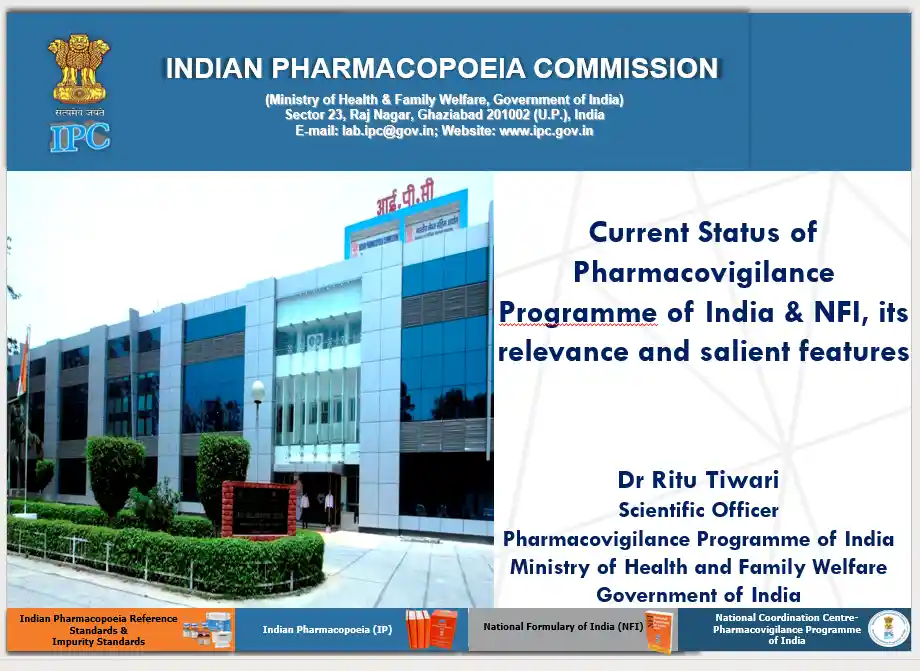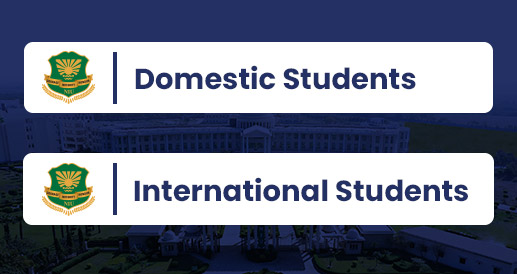GUEST LECTURE REPORT
ON
“Current Status of Pharmacovigilance Programme of India and NFI: Its Relevance and Salient Features”
Organized By: School of Pharmacy, Noida International University
Date of the Activity: 16/07/2025
Venue: School of Pharmacy, Noida International University
Guest Speaker: Dr. Ritu Tiwari, Scientific Officer, IPC
Occasion: Orientation Programme for Senior Students
INTRODUCTION
On the occasion of the Orientation Programme for senior students, the School of Pharmacy, Noida International University organized an insightful guest lecture on 16th July 2025. The topic of the session was “Current Status of Pharmacovigilance Programme of India and NFI: Its Relevance and Salient Features”. The session was graced by Dr. Ritu Tiwari, a distinguished Scientific Officer, who shared her vast knowledge and practical insights into the ongoing pharmacovigilance landscape in India.
This lecture aimed at sensitizing pharmacy students to the national initiatives in drug safety and rational medicine use, with a specific focus on the Pharmacovigilance Programme of India (PvPI) and the National Formulary of India (NFI).
OBJECTIVE
The objectives of the lecture were:
- To create awareness among students about the Pharmacovigilance Programme of India and its current operations.
- To introduce the students to the importance of adverse drug reaction (ADR) reporting.
- To familiarize students with the structure and application of the National Formulary of India in clinical practice.
- To encourage active participation in pharmacovigilance activities as future healthcare professionals.
KEY HIGHLIGHTS OF THE SESSION
- Introduction to PvPI and its Framework:
Dr. Ritu Tiwari explained the origin and purpose of PvPI, emphasizing the critical role of the Indian Pharmacopoeia Commission (IPC) as the National Coordination Centre. She elaborated on how ADR Monitoring Centres (AMCs) across India work in collaboration to ensure medicine safety.
- Importance of ADR Reporting:
The speaker highlighted the need for vigilant ADR reporting by pharmacists and other healthcare providers. She demonstrated how underreporting can impact public health and stressed students’ responsibility in contributing to a culture of safety.
- Overview of the National Formulary of India (NFI):
Students were introduced to the contents and usage of the NFI, a government-published reference that promotes rational prescribing and medication safety. The speaker explained how it assists professionals in evidence-based decision-making.
- Relevance in the Indian Healthcare System:
The lecture explored how both PvPI and NFI align with India’s healthcare objectives—ensuring safe, effective, and affordable medicine use.
- Interactive Case Discussions:
Dr. Tiwari presented real-world cases and encouraged student interaction, making the session engaging and informative. Practical examples of ADR management were discussed.
SALIENT FEATURES DISCUSSED
- Central coordination by IPC and support from CDSCO.
- Reporting tools such as Suspected ADR Reporting Forms and mobile apps.
- Key sections of NFI: drug monographs, dosage guidelines, contraindications.
- Benefits of NFI in reducing medication errors.
- Strategies to increase ADR awareness among students and practitioners.
CONCLUSION
The guest lecture by Dr. Ritu Tiwari was a highly enlightening and relevant academic initiative, providing senior pharmacy students with vital knowledge on national drug safety programs. Her emphasis on the active role of pharmacists in pharmacovigilance and rational use of medicines left a strong impression on attendees.
The session successfully bridged the gap between theoretical knowledge and practical healthcare responsibilities. It reaffirmed the importance of initiatives like PvPI and NFI in improving therapeutic outcomes and patient safety. The students appreciated the informative and interactive nature of the lecture, which will undoubtedly contribute to their professional development.


